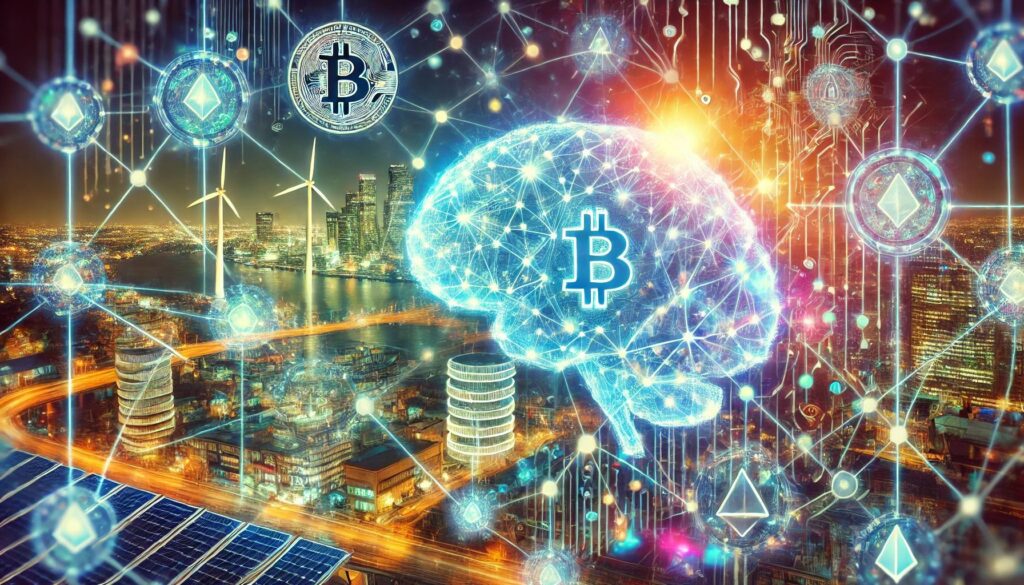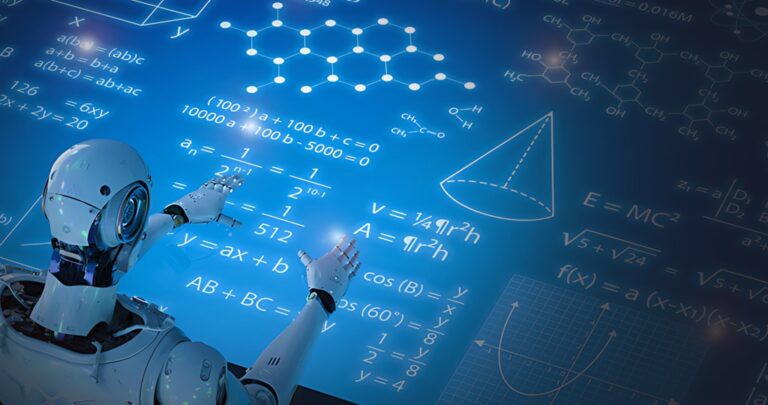
Integration of AI and blockchain represents the coming together of two of the most transformative technologies to emerge in recent times. Together, these two technologies are bound to revolutionize various industries with an enhancement of transparency, security, and efficiency. The following is a more elaborate description of how AI and blockchain intersect, the benefits that come with them, and the challenges they face.
Understanding AI and Blockchain
Artificial Intelligence (AI) involves the development of smart machines capable of performing tasks and learning in ways similar to humans. AI technologies encompass various areas such as machine learning, natural language processing, and computer vision. At its core, AI serves as an analytical system that identifies patterns and makes decisions based on the insights gained from these patterns.
1. Increased Security and Trust: The first benefit of blockchain is its security. When AI systems are combined with blockchain, the decisions and data generated by AI can be stored on the blockchain, which provides an immutable record. This enhances the trust in AI systems, as their outputs can be verified and audited.
2. Decentralized Intelligence: Blockchain decentralizes AI models and datasets. Traditionally, AI development is central, with data and models held by a few large entities. Blockchain can democratize AI in such a way that multiple parties can contribute to and benefit from AI development without a central authority. It may lead to more diverse and unbiased AI systems.
3. Data Integrity and Quality: For AI systems to perform optimally, they depend on high-quality data. Blockchain technology plays a crucial role in maintaining the accuracy and authenticity of this data. By documenting the complete lifecycle of data on a blockchain, it becomes feasible to track its origins and any modifications, thereby guaranteeing its dependability and consistency.
4. Smart Contracts: Smart contracts on blockchain can automate several processes, such as those related to AI. For example, AI algorithms can execute smart contracts under specific conditions. This combination can make operations in finance, supply chain, and healthcare much more streamlined, with less intermediaries and greater efficiency.
Applications of AI and Blockchain
1. Finance and Trading: In finance, the integration of AI and blockchain provides more secure and efficient trading platforms. AI algorithms can scan the marketplace for data and make trades by set criteria, while blockchain ensures these transactions become transparent and tamper-proof. Blockchains can also enable DeFi platforms, which is a decentralized form of finance, where AI can be able to manage and optimize one’s investment portfolio.
2. Supply Chain Management: AI and blockchain integrated in the supply chain could easily boost the industry. AI helps anticipate demand, optimize inventory and better manage logistics, while the former would track the provenance and movement of products. This would increase transparency levels as well as reduce cases of fraud, thereby resulting in improved efficiency in general across the supply chain.
3. Healthcare: In healthcare, AI and blockchain can secure patient data, streamline clinical trials, and manage pharmaceutical supply chains. AI can analyze patient data to provide personalized treatment recommendations, while blockchain ensures patient records are secure and can be shared across different healthcare providers without compromising privacy.
4. Energy Management: The integration of AI and blockchain has the potential to establish decentralized energy markets. AI can enhance efficiency by optimizing energy generation and usage, while blockchain can enable secure and transparent peer-to-peer energy trading.
Challenges and Considerations
Despite the myriad of benefits, the convergence of AI and blockchain is not without its challenges:
1. Scalability: Both blockchains and AI have scalability concerns. Blockchain networks become slow and cost-inefficient as more nodes are added, whereas computation requirements for AI models are high. Therefore, the scalability of both technologies needs to be addressed efficiently to succeed in their integration.
2. Regulatory and Legal Frameworks: AI and blockchain still evolve as regards regulatory compliance. This calls for an assurance on the complexities involved with respect to data protection, financial regulations, and more. It calls for guidelines and a framework on these challenges.
3. Interoperability: Integration of AI and blockchain calls for seamless interoperability between various systems and platforms. The creation of standard protocols and interfaces may aid in that.
4. Ethics: AI and blockchain technology have raised ethical questions related to data privacy, bias, and accountability. Strong governance frameworks and guidelines that are ethical in nature would help address these issues.
Future Prospect
AI and blockchain convergence has huge prospects for innovation and change. Their integration will eventually open new business models, create new efficiencies, and make people believe in digital systems much more than they do now.
Continued research and development, coupled with collaboration between industry, academia, and regulators, will be key to unlocking the full potential of AI and blockchain. By addressing the challenges and leveraging the strengths of both technologies, we can create a future where intelligent, decentralized systems drive progress and innovation.
In conclusion, this is a powerful combination of AI and blockchain that can revolutionize industries by enhancing security, transparency, and efficiency. The challenges aside, the potential benefits far outweigh the obstacles, making this an exciting area for future development and investment.
Read Also:











[…] The Transformative Convergence of AI and Blockchain […]